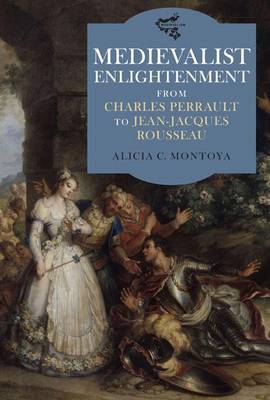Medievalism
1 total work
Medievalist Enlightenment: From Charles Perrault to Jean-Jacques Rousseau
by Alicia C Montoya
Published 1 January 2013
Literary medievalism played a vital role in the construction of the French Enlightenment. Starting with the Quarrel of the Ancients and Moderns, it influenced movements leading to the Romantic rediscovery of the Middle Ages, and helped to shape new literary genres, from the epistolary novel to the fairy tale and opera. Indeed, the dominant mode of the early Enlightenment, galanterie, was of medievalist inspiration.
Moreover, the academic study of medieval texts underlay modern ideals of scholarship, institutionalized at the royal academies. The Middle Ages polemically functioned as an alternative site, allowing authors to rethink their age's political and social ideologies. At the centre of these debates was the notion of historical progress. Was progress possible, as the philosophes held, or was human history a process of degeneration, with the Middle Ages as a lost Golden Age? From the re-evaluation of the medieval thus emerged not only the seeds of a new poetics, but also the central questions that preoccupied Enlightenment thinkers from Montesquieu to Rousseau.
This book shows how, in order to understand the aesthetic and intellectual transformations that marked modernity, it is essential to examine how this period conceived of the past, and particularly those "Dark Ages" that served as the defining foil for the modern Age of Light.
Alicia C. Montoya is an Assistant Professor at the Department of Literary and Cultural Studies at the Radboud University Nijmegen.
Moreover, the academic study of medieval texts underlay modern ideals of scholarship, institutionalized at the royal academies. The Middle Ages polemically functioned as an alternative site, allowing authors to rethink their age's political and social ideologies. At the centre of these debates was the notion of historical progress. Was progress possible, as the philosophes held, or was human history a process of degeneration, with the Middle Ages as a lost Golden Age? From the re-evaluation of the medieval thus emerged not only the seeds of a new poetics, but also the central questions that preoccupied Enlightenment thinkers from Montesquieu to Rousseau.
This book shows how, in order to understand the aesthetic and intellectual transformations that marked modernity, it is essential to examine how this period conceived of the past, and particularly those "Dark Ages" that served as the defining foil for the modern Age of Light.
Alicia C. Montoya is an Assistant Professor at the Department of Literary and Cultural Studies at the Radboud University Nijmegen.
